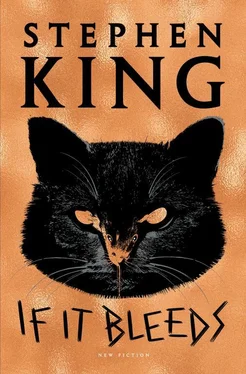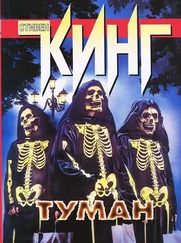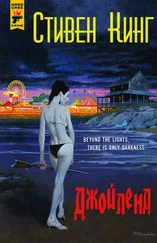Drew felt his pulse throbbing in his head as he picked it up, so maybe he wasn’t completely well, after all. He squeezed the rat and it gave a tired squeak. Just a toy, but sort of creepy, all things considered. Who gave their kid a stuffed rat to sleep with, when there was a perfectly good teddy bear (only one eye, but still) in the same box?
No accounting for tastes , he thought, and finished his mother’s old maxim out loud: “Said the old maid as she kissed the cow.”
Maybe he’d seen the stuffed rat at the height of his fever and it had kicked off the dream. Make that probably, or almost certainly. That he couldn’t remember searching all the way to the bottom of the toybox didn’t signify; hell, he couldn’t even remember taking off his clothes and going to bed.
He piled the toys back into the box, made himself a cup of tea, and went to work. He was doubtful at first, hesitant, a little scared, but after a few initial missteps, he caught hold and wrote until it was too dark to see without using the lantern. Nine pages, and he thought they were good.
Damn good.
24
It wasn’t a three-day blow; Pierre actually lasted four. Sometimes the wind and rain slackened and then the storm would crank up again. Sometimes a tree fell, but none as close as the one that had smashed the shed. That part hadn’t been a dream; he’d seen it with his own eyes. And although the tree—a huge old pine—had largely spared his Suburban, it had fallen close enough to tear off the passenger side mirror.
Drew barely noticed these things. He wrote, he ate, he slept in the afternoon, he wrote again. Every now and then he had a sneezing fit, and every now and then he thought about Lucy and the kids, anxiously waiting for some word. Mostly he didn’t think about them. That was selfish and he knew it and didn’t care. He was living in Bitter River now.
Every now and then he had to pause for the right word to come to him (like messages floating up in the window of the Magic 8 Ball he’d had as a kid), and every now and then he had to get up and walk around the room as he tried to think of how to make a smooth transition from one scene to the next, but there was no panic. No frustration. He knew the words would come, and they did. He was hitting from all over the court, hitting from way downtown. He wrote on Pop’s old portable now, pounding the keys til his fingers hurt. He didn’t care about that, either. He had carried this book, this idea that had come to him out of nowhere while standing on a street corner; now it was carrying him.
What a fine ride it was.
25
They sat in the dank cellar with no light but the kerosene lantern the sheriff had found upstairs, Jim Averill on one side and Andy Prescott on the other. In the lantern’s reddish-orange light, the kid looked no older than fourteen. He certainly didn’t look like the half-drunk, half-mad young tough who had blown off that girl’s head. Averill thought that evil was a very strange thing. Strange, and sly. It found a way in, as a rat finds its way into a house, it ate whatever you had been too stupid or lazy to put away, and when it was done it disappeared, its belly full. And what had been left behind when the murder-rat left Prescott? This. A frightened boy. He said he couldn’t remember what he had done, and Averill believed him. He would hang for it just the same.
“What time is it?” Prescott asked.
Averill consulted his pocket watch. “Going on six. Five minutes later than the last time you asked me.”
“And the stage is at eight?”
“Yes. When it’s a mile or so out of town, one of my deputies will
Drew stopped, staring at the page in the typewriter. A bar of sun had just struck across it. He got up and went to the window. There was blue up there. Just enough to make a pair of overalls, Pop would have said, but it was growing. And he heard something, faint but unmistakable: the rrrrrr of a chainsaw.
He put on the musty jacket and went outside. The sound was still some distance away. He walked across the yard, which was littered with branches, to the remains of the equipment shed. Pop’s bucksaw was lying beneath part of a fallen wall, and Drew was able to wiggle it out. It was a two-hander, but he’d be all right with it as long as any downed tree he came to wasn’t too thick. And take it easy , he told himself. Unless you want a relapse.
For a moment he thought about just going back inside and resuming work instead of trying to meet whoever was down the road, cutting a path through the storm’s leavings. A day or two before he would have done just that. But things had changed. An image rose in his mind (they came all the time now, unbidden), one that made him smile: a gambler on a losing streak, abjuring the dealer to hurry up and spin those fucking cards. He wasn’t that guy anymore, and thank God. The book would still be there when he got back. Whether he resumed out here in the woods or back in Falmouth, it would be there.
He tossed the saw in the back of the Suburban and began rolling slowly up Shithouse Road, pausing every now and then to throw fallen branches out of his way before going on. He went almost a mile before he came to the first tree down across the road, but it was a birch, and he made quick work of it.
The chainsaw was very loud now, not rrrrr but RRRRRRR . Each time it ceased Drew would hear a big engine revving as his rescuer came closer, and then the saw would start up again. Drew was trying to cut his way through a much bigger tree and not having much luck when a Chevy 4X4, customized for woods work, came lumbering around the next bend.
The driver pulled up and got out. He was a big man with an even bigger belly, dressed in green overalls and a camo coat that flapped around his knees. The chainsaw he carried was industrial-sized, but looked almost like a toy in the guy’s gloved hand. Drew knew who he was at once. The resemblance was unmistakable. So was the whiff of Old Spice that went with the smells of sawdust and chainsaw gasoline. “Hey there! You must be Old Bill’s boy.”
The big man smiled. “Ayuh. And you must be Buzzy Larson’s.”
“That’s right.” Drew hadn’t known how much he needed to see another human being until this moment. It was like not knowing how thirsty you were until someone handed you a glass of cold water. He stuck out his hand. They shook over the downed tree.
“Your name’s Johnny, right? Johnny Colson.”
“Close. Jackie. Stand back and let me cut that tree for you, Mr. Larson. Take you all day with that buck.”
Drew stood aside and watched as Jackie cranked up his Stihl and zipped it through the tree, leaving a neat pile of sawdust on the leaf- and twig-littered road. Between the two of them, they shifted the smaller half into the ditch.
“How is it the rest of the way?” Drew asked, puffing a little.
“Not terrible, but there’s one bad washout.” He squinted one eye closed and sized up Drew’s Suburban with the other. “That might getcha through, it’s pretty high-sprung. If it don’t, I could tow you, although it might ding up your exhaust system a dight.”
“How did you know to come out here?”
“Your wife had Dad’s number in her old address book. She talked to my ma, and Ma called me. Your wife is some worried about you.”
“Yes, I suppose she is. And thinks I’m a damned fool.”
This time Old Bill’s boy—call him Young Jackie—did his squinting at the tall pines to one side of the road and said nothing. Yankees did not, as a rule, comment on other folks’ marital situations.
“Well, I’ll tell you what,” Drew said. “How about you follow me back to my dad’s cabin? Have you got time to do that?”
Читать дальше








